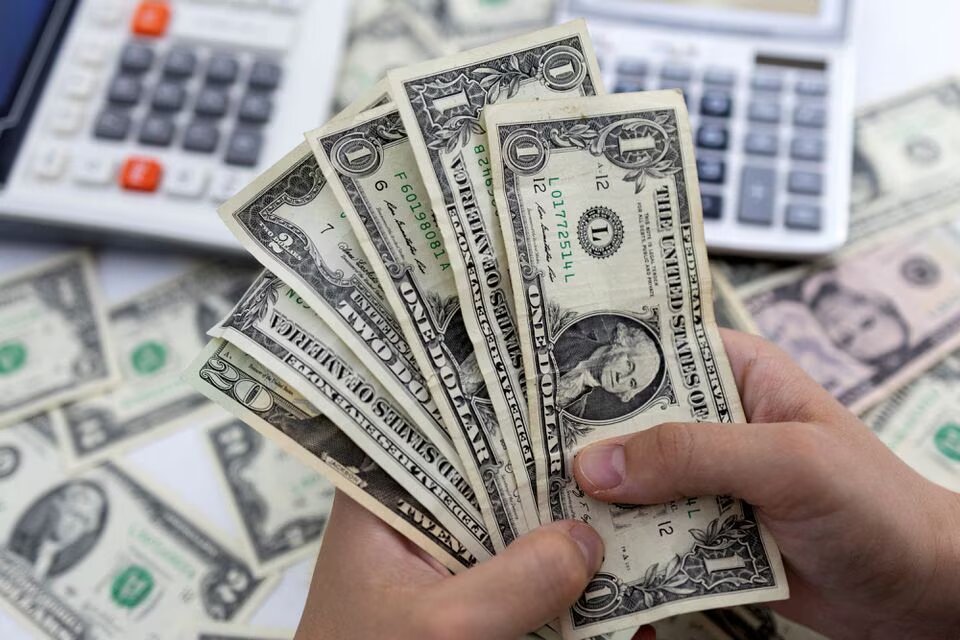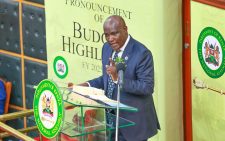State faces Sh102b bill as gulf oil deal matures

National Treasury is expected to pay $700 million (Sh102.4 billion) this week for the first consignment of petroleum products in the landmark government-to-government deal initiated in March, in a major test for the country’s pool of forex reserves.
This payment marks a crucial step in ensuring the steady supply of essential fuels as any delay would disrupt the flow of oil into the country.
“Based on April 2023 prices, the total obligation is estimated at around $700 million per month for a total of over $4 billion by end of September 2023,” Treasury said. The agreement, forged earlier this year, has been a focal point of attention within both government circles and the energy industry.
The partnership was established with the aim of securing a consistent and reliable source of petroleum products to meet domestic demand and to bolster the nation’s energy security.
Piling pressure
With an estimated $4.0 billion worth of petroleum products accrued through the end of September 2023, this payment will draw a significant amount of forex from the economy, piling pressure on the exchange rate. Central Bank of Kenya weekly bulletin shows that forex reserves dipped last week to stand at 3.8 months of import cover which is lower than the statutory requirement of four months.
The petroleum products acquired through this deal are expected to cover a wide range of energy needs, from gasoline for vehicles to aviation fuel and heating oil. In addition to the payment for the first consignment, this week also marks the time for the price review for the upcoming pricing cycle, spanning from September 15 to October 14.
This periodic review is a standard practice in the petroleum industry and ensures that the pricing of petroleum products remains fair and competitive in the domestic market. It takes into consideration various factors including global oil prices, exchange rates, and domestic supply and demand dynamics.
The government last month reinstated fuel subsidies after imported fuel prices rose further threatening to raise the cost of living.
As the nation looks forward to the first payment for the petroleum products deal and the subsequent price review, these developments serve as a test of the government’s dedication to ensuring energy security and economic stability.
The partnership with the foreign government promises to be a pivotal driver of the nation’s energy sector and reinforces its position in the global energy landscape.
Analysts at EFG Hermes had expressed concern that the oil payments may reduce the pool of dollars available to retire $2 billion Eurobond loan due to next year.
“Under the terms of agreement which has initial period of nine months through to December, the fuel is imported on six months credit backed commercial letters of credit issued by domestic banks and backs by international banks,” Treasury said. To address the escalating demand for the U.S. dollar, the Kenyan government in March began importing diesel, super petrol, and jet fuel on credit.
At the time, Kenya was exploring ways to cut its fuel costs, considering that the country was spending an average of Ksh 100 billion on fuel imports, putting immense pressure on its foreign exchange reserves. The decision to delay the first payment until September was made to provide traders and importers with interim access to the necessary currency during this period.
Fuel imports
According to the Ministry of Energy’s announcement made in March, Oil marketing compaies’ (OMC) outstanding obligations are expected to reach a maximum of six months’ worth of fuel imports. While the responsibility for making payments lies with the OMCs, the Kenyan government has assumed the financial risk through Letters of Support.
Kenya has not yet confirmed whether the oil contract will be extended beyond its initial expiration date in December 2023. The Ministry of Energy indicated that it would return to the Open Tender System if the contract successfully alleviates the dollar crisis.











